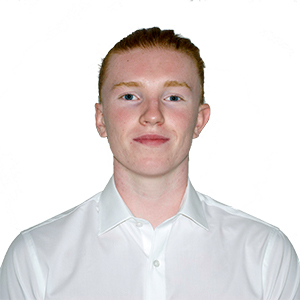“Empowerment” is the word that comes to mind when reflecting upon my experience with Learn to Start. Mr. Conroy’s high school class was my first taste of formal education in the space of entrepreneurship. It is one of conventional education’s greatest failures that students are without a comprehensive introduction to entrepreneurship, which enables young people to create meaningful change in their environment better than any other.
Learn to Start allowed us to try and fail in a space which encouraged learning under pressure to have immediate success. I learned more from my experience of trying and failing to launch a company with my friends in Learn to Start than I would have done had it been a success. Failure is seen as a tremendous tool to be leveraged in learning rather than something to be avoided.
Learn to Start also exposed me to practical business scenarios at a level which is unavailable even to a majority of college students. All under the age of 18, my peers and I conducted consulting work for small businesses and national firms alike, giving us an early glimpse into the running of a successful company. Not only were we observing, but making recommendations to these firms on realistic changes that could be implemented. We pitched business owners our ideas on potential changes that could be made to all aspects of their business plans, all of which culminated in our taking away of first-hand experience working with senior management at all sizes of firms.
It was through my experience with Learn to Start that I have been able to make such a positive start to my career in higher education and beyond. I obtained powerful letters of recommendation from those we worked with in our consulting project, and have made many connections with whom I am still in contact. I was accepted into a fellowship at Social Impact 360, a youth-led movement which strives to mentor young entrepreneurs interested in socially-conscious business. It was at the Social Impact 360’s national conference held at the World Trade Center where my partner and I won the “Maximizing Your Impact” consulting competition.
These successes are a direct result of the failures I was afforded in Learn to Start. I learned how to pitch by pitching badly and learning from the experience. I learned what is expected from a consulting team by failing to live up to the standard at the first time of asking. Above all else, I am learning to be an entrepreneur by failing my way there – a concept I was introduced to in Learn to Start.
By Ben Best, LTS Alumnus

LTS Graduate (NBPS)
LEARN TO START

connect with us
Get in touch and ask us a question about any aspect of Learn to Start.
This site is protected by reCAPTCHA. The Google Privacy Policy and Terms of Service apply.
© Startup Studio LLC | All rights reserved | Legal Policies